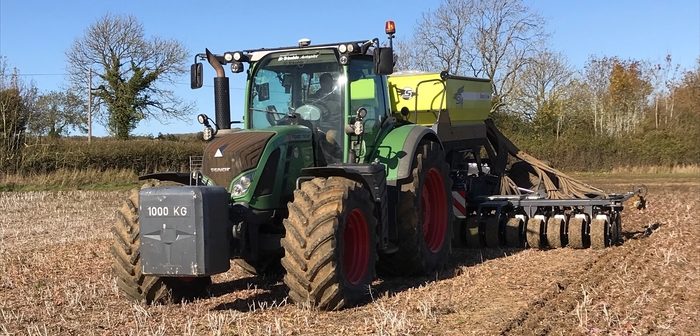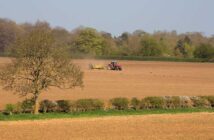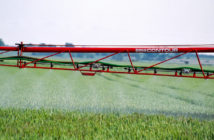Growers have chance to see first-hand how crop competition can be used to tackle problematic black-grass at a Hutchinsons demonstration next month.
The open day on 14 March at Hutchinsons’s Mollington black-grass centre near Banbury in Oxfordshire will showcase the firm’s latest research into ways of maximising crop competitiveness through measures including seed rates, variety choice, establishment technique and drill choice.
The work builds on techniques developed at Hutchinsons’s Brampton site in Cambridgeshire, and four years of work at Mollington, which has seen black-grass populations fall from 1,500 plants/m2 to 50 plants/m2.
A significant new addition this season is the inclusion of winter wheat in the rotation for the first time since the demonstration site opened.
Three different drills (a Weaving GD, Sky Easidrill and Vaderstad Rapid) were used to sow the wheat field last autumn to see if there are any differences in crop establishment and black-grass pressure between each machine.
Hutchinsons agronomist Toby Kellie says the trial already shows some possible benefits from using drills that disturb less black-grass, which seem to have resulted in reduced weed competition.
However, he says a balance must be found, as wheat in these “low disturbance” plots appears less vigorous than crops sown into plots with greater soil disturbance, yet more black-grass germination.
Growers attending the event will be able to compare these differences for themselves, and hear how oilseed rape can be managed to ensure a clean entry into wheat.
There will also be chance to see how seed rate affects black-grass competition in large hectare plots of leading winter wheat varieties with different agronomic characteristics.
Each variety was sown in the third week of October at two different seed rates (400 and 500 seeds/m2) to see whether the optimum rate may have to be matched to the individual attributes of the variety.
Those chosen include; the late-drilling vigorous variety, Crispin; a tall variety, Skyscraper; and a high tillering variety Sundance. These will be compared against the farm standards of Skyfall and Costello.
“They will all be treated the same, but come harvest, the trials will hopefully show the agronomy areas where changes need to be made to get the best out of each variety for black-grass control,” notes Mr Kellie.
A range of crop and black-grass measurements are being taken throughout the season, including plant counts, emergence, speed of growth, tillering and final ear counts, he adds.
Drill demonstration
Another part of the open day is a drilling demonstration featuring several leading makes, to see whether slight differences in drill technology have any impact on crop competition and black-grass pressure for spring-sown crops.
Six drills will be demonstrated, including a Weaving GD, Sky Easidrill, Amazone Cayenna, John Deere 750A, together with the host farm’s Horsch Sprinter and Vaderstad Rapid.
“Every machine works slightly differently, so it will be a great opportunity for growers to see how drill technology affects establishment, crop competition and resulting black-grass pressure,” says Mr Kellie.
A similar trial two years ago showed interesting differences in speed of establishment and black-grass levels through the season, he notes. “One drill disturbed the most black-grass initially, but due to the speed of crop establishment and vigour, it ended up having considerably less black-grass at the end.”
“This highlighted the enormous effect crop competition can have, and that sometimes, crop establishment shouldn’t be compromised to prevent black-grass disturbance. Row spacing is also very important as we’ve seen before that wide gaps between rows can fill with black-grass.”
Hutchinsons experts will be on hand to discuss any differences in drill technology and the interactions with seed rates, varieties and early nutrition to support crop development.
“With all of these trials we’re not trying to produce a blueprint for what growers should do, but provide extra information and knowledge to help everyone make more informed decisions,” Mr Kellie says.
“We can’t afford to standstill against black-grass or in any aspect of agronomy, so have to keep learning and trying new things.”
The Mollington demonstration will take place on Thursday 14th March, 10am-12pm. For more information and to book your place, please contact the Banbury office on 01295 680872 or email banbury@hlhltd.co.uk




